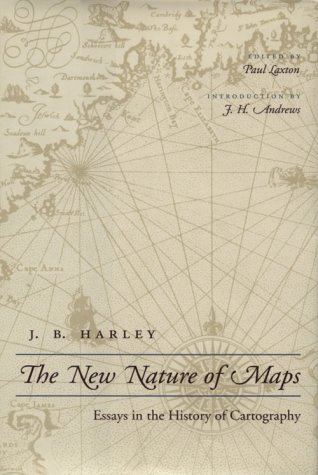Focusing on historical examples and the practises of modern cartography, J.B. Harley (1932-1991) offers an alternative to the dominant view that Western cartography since the Renaissance has been a progressive technological, scientific and objective trajectory of development. This traditional view asserts that maps produce an accurate relational model of terrain and, as such, epitomize representational modernism, which is rooted in the project of the Enlightenment; in sum, maps banish subjectivity from the image. Accordingly, cartographers have promoted a standard scientific model for their discipline, one in which a mirror of nature can be projected through geometry and measurement. Cartographers often mistakenly assess early maps by this modern yardstick, excising from the accepted canon of mapping not only maps from the premodern era but also those from other cultures that do not match Western notions of accuracy.
In these essays, Harley draws on ideas in art history, literature, philosophy, and the study of visual culture to subvert the traditional, "positivist" model of cartography, replacing it with one that is grounded in an iconological and semiotic theory of the nature of maps. He defines a map as a "social construction" and argues that maps are not simple representations of reality but exert profound influences upon the way space is conceptualized and organized. A central theme is the way in which power - whether military, political, religious or economic - becomes inscribed on the land through cartography. In this reading of maps and map making, Harley undertakes a surprising journey into the nature of the social and political unconscious.
- ISBN10 0801865662
- ISBN13 9780801865664
- Publish Date 17 April 2001
- Publish Status Out of Stock
- Out of Print 7 May 2002
- Publish Country US
- Imprint Johns Hopkins University Press
- Format Hardcover
- Pages 352
- Language English
